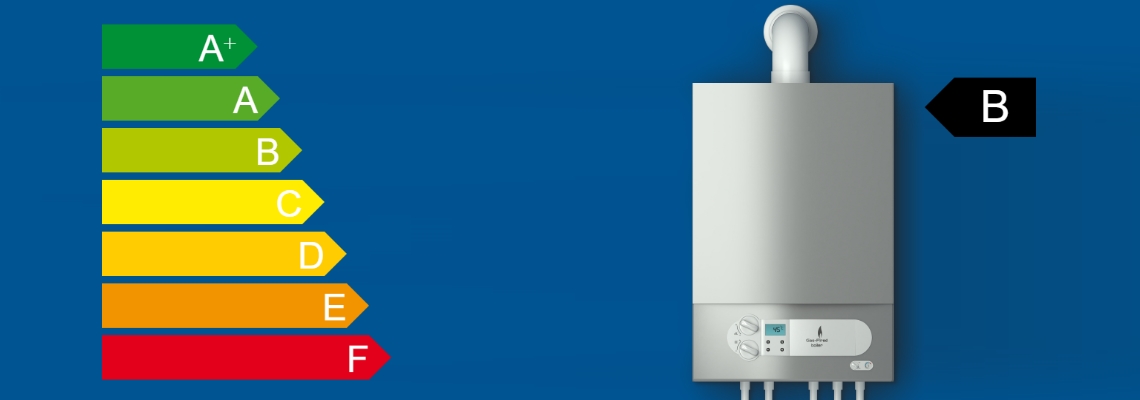The ErP (Energy related Products) Directive came into effect on the 26th September 2015 as part of the EU’s commitment to reducing carbon emissions. The new labelling systems aim is to make it easier for customers to choose the most energy efficient products, saving money and reducing environmental impact. The initiative directly affects both manufacturers and installers, so we have outlined everything you need to know.
How will ErP work?
The directive is split into two parts, Ecodesign and Energy Labelling;
Ecodesign
Ensures that products meet certain energy performance criteria. Manufacturers are only allowed to sell products that comply with these guidelines, meaning many low-rated products are longer permitted. Gas boilers have seen major change sunder ERP, with Baxi stating that ‘ErP will effectively, over time, eliminate all non-condensing boilers up to 400kW from the market.’ There is a detailed set of criteria dictating which products are to be included on the information pages from GOV.UK.
Energy Labelling
Clearer energy labelling will ensure that energy using products like space and water heaters are correctly labelled. They will need to carry the same type of energy labels as other electrical goods, with a classification ranging from A+++ to G (with G being the lowest band).
What does ErP labelling look like?
The labelling looks familiar as it is used in many household energy products, including fridges and dishwashers. When ERP labelling for boilers started in 2015 it include the F and G classification but over time these will be phased out. For boilers and related products the label will show the efficiency band for heating and if applicable the hot water production and sound power level. For further details, the HHIC has more information on Energy labelling including examples of what the new version should look like.
What are Heating Engineers responsibilities under ErP?
Whilst manufacturers have to ensure that their products meet ERP standards, installers are also responsible for providing accurate labelling for the complete energy systems they install. This requires:
- The calculation of an efficiency figure for the whole system based on the various components included in it (for example a boiler and controls).
- This figure to be added to the package label of installed systems.
- The completion of a ‘fiche’ document.
How is ErP implemented?
Installers don’t need to undertake any additional training to comply with the ERP Directive, but it is recommended that you make sure you are fully aware of the additional responsibilities it brings. The National Measurement Office are responsible for enforcing the ErP Directive. The production and installation of heating systems that are not compliant could mean legal action or even criminal prosecution for the offending manufacturer or installer.
For further information about the ErP Directive, including labelling regulations and a label generator, we recommend visiting the European Commission’s pages on Energy Efficient Products.






